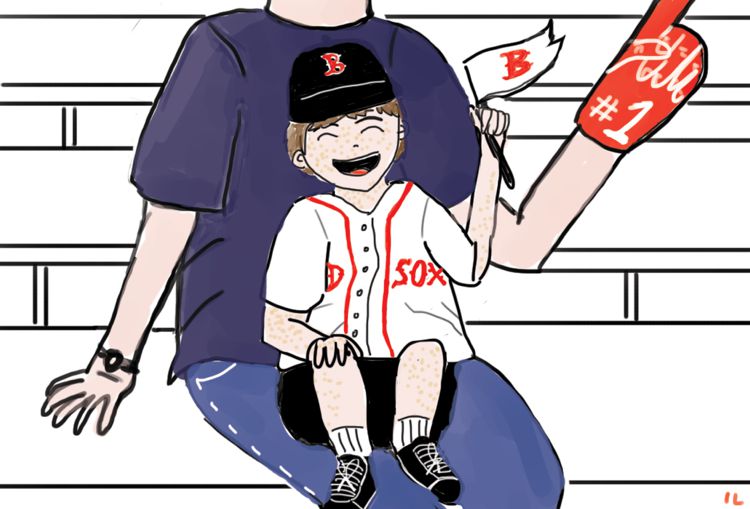I was sitting next to my dad when the Red Sox won the 2004 World Series for the first time in 86 years. My New England parents forewent my bedtime in the name of reversing the curse of the Bambino — the 86 fruitless seasons following the Sox sale of Babe Ruth to the team that shall not be named.
Seeing the Red Sox win the World Series was a night for which all Sox fans, including my parents, had spent their lives waiting. At 9 years old, I hadn’t endured the Red Sox heartache others had, but I knew I was experiencing a once-in-a-lifetime event. On my green couch, in a Big Papi shirt, I was a part of something bigger than myself. It was the first time I felt a sense of belonging in my home state of Massachusetts.
Chubbiness, sassiness and an addiction to neon clothing made childhood in small town New England incredibly difficult. Watching that decisive game in 2004, the characteristics for which I always felt ostracized did not matter. To be a Sox Fan, I only had to love the team, and that — unlike sailing or knowing how to style brown knee boots — came naturally to me.
In the face of the Sox’s success, I was suddenly more connected to my family, my town and kids at my school. I was given a sense of belonging to the preppy world (read: 14,000 person town) for which I had always felt “too weird.” Boston sports were the first common denominator I found between myself and my community. And to this day, spotting someone in a Patriots shirt or a Bruins hat gives me instant comfort and us, camaraderie. Sports, and sports fandom, provides a common ground.
I remember once deeming sports less important than art, reasoning that when I finished a painting I have completed a tangible thing. I did not think that there was a physical product to show for playing sports, and therefore there was no reason to play them. (Note: I was eight and a brat.) It is clear to me now that sports redefine end products. Sports leave you with experiences, lessons, memories, physical strength, perseverance, community, endurance and drive. Sports bring people together and push people harder. They teach us that there are things worth doing just to do them. It’s not always about the product. It is about the process.
Of course, competition is the lifeblood of sporting events. But sports are not only about winning. Athletes and fans are challenged when teams lose. After a loss, we question how much we care, how far we will go, how die-hard we really are. After a loss (or 86 years of losses), community is built. Sports love is unconditional, and regardless of how many losses, errors, dropped balls or stupid trades, I will wear my Boston hat and I will scowl at anyone in a Yankees cap. Sports are like real-life comic books; you root for the good, you boo the bad and you know that in your fandom, you are never alone.
Sports teach us to keep trying and to constantly redefine what success means. They bring people together. Sports go far beyond competition, and teams are more than just names on a roster. Sports matter because community matters.
Griffin Wynne is a senior Religious Studies major with an interdisciplinary concentration in Cognitive Science and a minor in Classics. She can be reached at mwynne@oxy.edu.
![]()




































